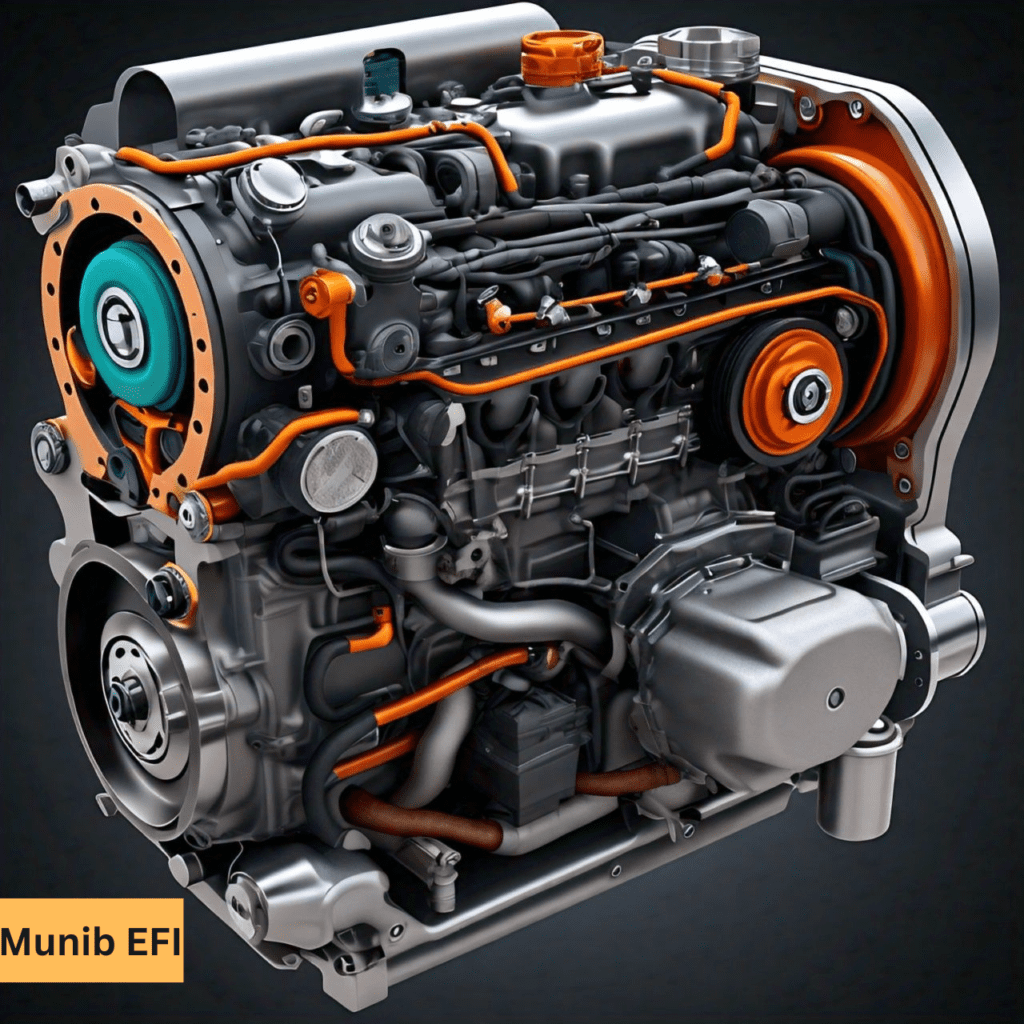Change and invention are nothing new to the field of vehicle engineering. Electronic Fuel Injection (EFI) diesel engines are one of the key developments influencing the direction of cars in the future because of their remarkable performance, efficiency, and environmental friendlines. In order to help fleet managers, eco-conscious consumers, and automobile enthusiasts alike seek for a more powerful and sustainable driving experience, this blog post attempts to demystify the EFI diesel engine.
Introduction:
Fundamentally, an electronic control unit (ECU) in an EFI diesel engine direct injects gasoline into the combustion chamber at just the exact time to guarantee maximum combustion and efficiency. With EFI systems, power production, fuel consumption, and pollution management are all much improved over conventional diesel engines that depend on mechanical pump systems.
Realising the Technology: EFI’s Lifeblood
Both fascinating and complicated is the technology underlying EFI diesel engines. Many sensors are used to track engine parameters like temperature, air intake volume, and speed. By real-time processing of this data, the ECU modifies the timing and amount of fuel injection to precisely match the engine’s operating conditions. Because of this accuracy, which also reduces waste, EFI diesel engines are proof of the union of power and conservation.
Comparison of Conventional Diesel and EFI Diesel
Several areas are where EFI diesel engines excel over their traditional counterparts: Performance
The exact management of fuel injection timing in EFI diesel engines results in a smoother and more responsive driving experience.
More power and torque production are the results of the higher combustion efficiency without sacrificing fuel economy.
Economy of Fuel
Customising fuel injections for each engine cycle, EFI systems guarantee that the engine only gets the gasoline it requires. The fuel efficiency increases noticeably as a result of this optimisation.
Lower RPMs made possible by the computerised control also mean less wear and tear and longer engine life.
Environmental Management
Environmentally friendly and cleaner than traditional diesel engines, EFI diesel engines emit far less pollutants.
The exact fuel and air mixture lowers unburned fuel, which would otherwise add to dangerous emissions.
The Path Ahead: Prospects and Promise
EFI diesel engines have come to light as a game-changer that might completely change how we drive as the automobile industry continues to move towards efficiency and sustainability. EFI diesel engines are becoming the preferred option for both businesses and individuals as technology and research continue to increase performance, fuel economy, and emissions control.
Modern Demands Met by the Evolution of EFI Diesel Engines
Technology for EFI diesel engines is developing continuously to satisfy requirements for both commercial efficiency and environmental responsibility. Advanced EFI systems along with innovations like turbocharging and intercooling have produced diesel engines that meet strict environmental regulations and outperform their predecessors.
Uses in Practicals Driven World EFI diesel engines today have found a home in a variety of applications, from the cars and SUVs that line our highways to the heavy industrial and business fleets that power our economy. Long-distance transportation, building, and even naval propulsion find them especially enticing because of their dependability and efficiency, demonstrating how important EFI technology is in the mechanised world of today.
What’s Ahead for EFI Diesel Engines?
Opportunities for additional innovation and refinement abound with EFI diesel technology. Furthermore improving the efficiency, durability, and environmental compatibility of EFI diesel engines are developments in digital diagnostics, innovative materials, and hybridization. As the automotive sector keeps giving sustainability first priority, EFI diesel technology will continue to lead the way and power the cars of the future with more environmental consciousness.
FAQs
Do EFI diesel engines only run on diesel fuel?
A: Electronic fuel injection diesel engines are made expressly to run on diesel fuel.
Exist any drawbacks to using an EFI diesel engine instead of a traditional one?
A: The long-term advantages of increased performance and efficiency much exceed any possible drawbacks, even if the initial outlay may be greater.
Are traditional and EFI diesel engines maintained differently?
To guarantee best operation, EFI systems do need routine maintenance and calibration, however this is usually less often than with conventional mechanical systems.
Do all diesel engines now days use EFI technology?
A: While EFI diesel engines are included in many new cars and equipment, several older models still
Conclusion
A big step forward in automobile engineering, EFI diesel engines provide a combination of power, efficiency, and environmental care that fits with contemporary needs and ideals. EFI diesel engines provide a compelling option whether you’re a fleet manager seeking efficiency and dependability, an eco-conscious consumer seeking greener alternatives, or an enthusiast for cars interested in the newest developments in engine technology. Through the union of the old and the new, EFI technology drives the diesel engine into a future in which sustainability and performance may live in peace.
In the ever changing field of automobile technology, the EFI diesel engine is a lighthouse of invention that points the way for a future that is cleaner, more powerful, and more efficient.



